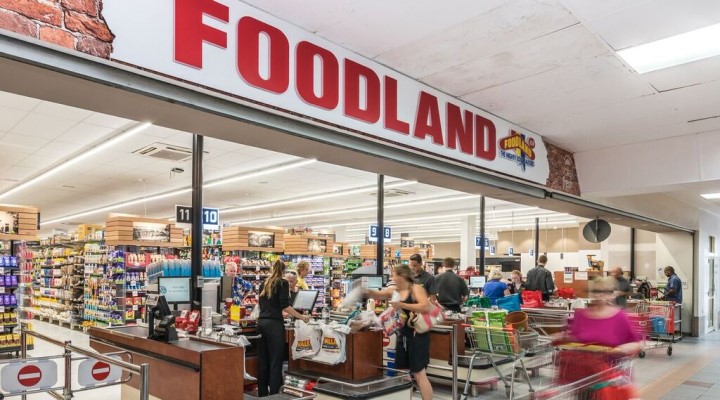For a relatively small player in the national supermarket landscape, Foodland is having an impact that stretches far beyond its home state of South Australia. In fact, it has been the only chain to compete with Aldi in the last nine years of the Canstar Blue Supermarket satisfaction ratings, interrupting its winning streak in 2013 and 2017. There are a number of reasons the retailer continues to win over consumers and compete with the major industry players on home soil. Foodland chief exe
chief executive officer, Franklin dos Santos told Inside Retail it comes down to “in-store experience, support of provenance and [the focus on] local”.
Major players like Coles and Woolworths have already cottoned on to the value of local neighbourhood stores. Earlier this month Woolworths revealed a new concept in neighbourhood grocery retail. But dos Santos isn’t worried. He believes the bigger retailers will struggle to form the same long-term relationships with small, local suppliers.
“They don’t have the ability to compete on the expansive ranges that we do on provenance,” he said. “Our stores support the local community whether it is the cottage industries or local farmers. That is our point of difference, and it’s very hard to copy that.”
Due to the retailer having the largest supermarket distribution footprint in the state, it is entrenched in the communities that it serves.
“We’ve got more stores than any other retailer in South Australia, which means we’ve got a better chance of understanding our community than any other retailer,” dos Santos said.
And despite its origins dating back to 1987, its retailers remain innovative and agile in order to compete with the big guys.
“In Adelaide, we’ve got the most innovative retailers not only in South Australia but in Australia,” he said. “We’ve got retailers that are prepared to invest heavily in competing day-to-day, head-to-head with Coles, Woolworths and Aldi.”
As far as bricks-and-mortar retail is concerned, dos Santos said Foodland “easily competes” with the three majors in South Australia and has the highest market share of any independent supermarket group in Australia.
Bricks-and-mortar revamp
Despite its large store footprint, Foodland has plans to be even bigger and last week announced a $300 million five-year growth plan involving a revamp of its store design, expansion into more locations and the creation of over 2500 jobs.
As part of its $90 million bricks-and-mortar transformation, stores will undergo “interior facelifts and façade refurbishments”.
Dos Santos said the retailer is adapting to the changes in how the customer wants to shop.
“It’s about making a substantial improvement in the ambience and moving into a market feel across the stores,” he said.
Foodland’s strategic distribution partner, Metcash, is central in allowing the retailer to scale up expansion into more locations by providing access to an $80 million purpose-built distribution centre at Gepps Cross.
Snubbing online
With the strong financial investment and support in distribution all signs are pointing to online investment, however Foodland is looking in the other direction – at bricks-and-mortar retail which dos Santos believes is more important for its customer base.
“From the information released and that I’ve seen in regards to the online platforms for Coles and Woolworths, no one is making money on online at the moment … From our perspective, the stores do run their own division online but we don’t run it as a group.”
He believes doing so would have a ”negative impact on the business”.
Covid learnings
While South Australia narrowly avoided a second wave of Covid-19 earlier this month, the retailer did have its fair share of supply chain issues at the height of the pandemic in Australia.
One of the big learnings for Foodland was the importance of “sovereign manufacturing”.
“It was those Australian and South Australian businesses that did the heavy lifting to get stock back on the shelf. They ran those plants day and night to make sure there was stock and provided assurity back to the community that we were fine.
“Most importantly, the government has also acknowledged the capability of sovereign manufacturing with the level of investment into the food industry of around $1.2 billion.”
The other thing that Covid-19 highlighted was a change in community thinking, dos Santos said.
“Before Covid, the community was very Darwinistic in its thinking from our view, but [since Covid-19] the community has become more socialistic in its approach, and the expectation of the way government operates,” he said.
The reliance on each other and on government for support during the crisis has prompted this change in thinking, according to dos Santos.
With communities holding retailers to a high standard on sustainability, company ethics and values, Foodland is well positioned to deliver.
“That’s what we do well and we’ve always done. So I think from our view as a brand, we’re better placed than any other retailer, to be able to do that, to demonstrate our social licence. That’s one of the key learnings that I had from Covid, that expectation of social licence by the community of big business like ourselves to be to be engaging in,” dos Santos said.

